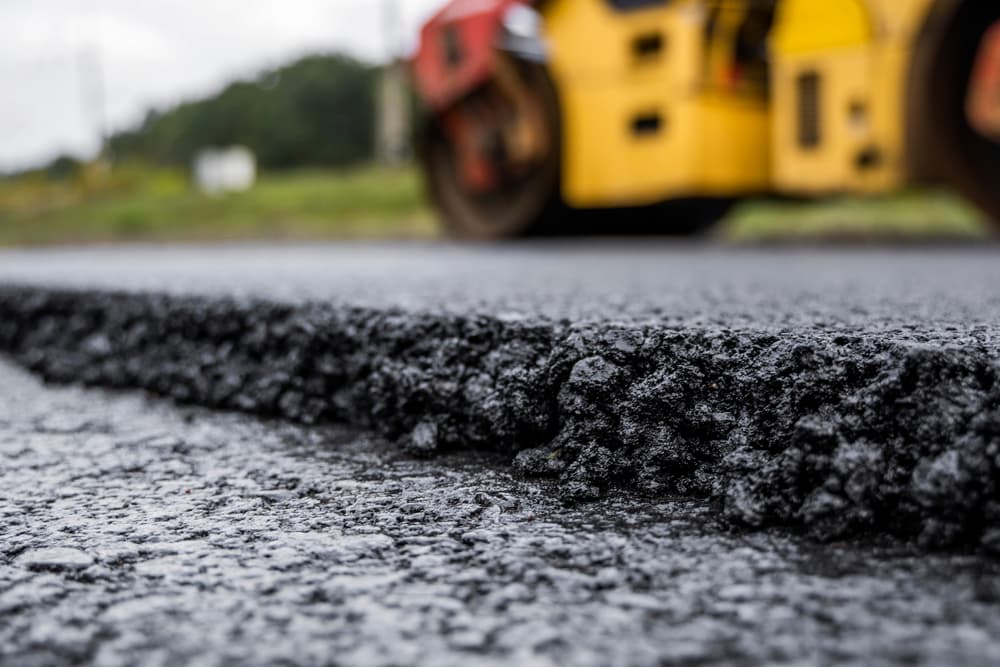Exploring the Ecological Benefits of Hot Mix Asphalt
The usage of Warm Mix Asphalt in framework jobs provides a compelling case for sustainable development and ecological stewardship. By diving into the detailed information of its production procedures and the ingenious use recycled products, a much deeper understanding emerges of how this modern technology exceeds plain surface applications. The environmental benefits of Warm Mix Asphalt extend much beyond first perceptions, offering a nuanced viewpoint on exactly how this material can lead the way for a greener future.

Lowered Greenhouse Gas Emissions
The manufacturing procedure of Hot Mix Asphalt involves heating up the mixture of accumulation and asphalt binder to high temperatures. By integrating redeemed asphalt pavement and recycled asphalt tiles right into the mix, the demand for virgin materials is lowered, leading to power financial savings and reduced discharges associated with removal and handling.
Studies have revealed that Hot Mix Asphalt sidewalks have a smaller sized carbon footprint over their life cycle contrasted to various other pavement options. The resilience and recyclability of Hot Mix Asphalt additionally improve its environmental advantages by minimizing the need for constant upkeep or replacement, consequently preserving sources and lessening emissions related to repair tasks.
Power Efficiency and Preservation
The manufacturing procedure of Hot Mix Asphalt not only reduces greenhouse gas emissions but likewise adds dramatically to power performance and preservation initiatives. Power performance is a crucial benefit of Warm Mix Asphalt manufacturing contrasted to various other sidewalk kinds. The longevity of Hot Mix Asphalt decreases the frequency of upkeep and repair, leading to lasting power cost savings.
Lasting Pavement Solutions

One key facet of lasting sidewalk remedies is making use of recycled products such as redeemed asphalt sidewalk (RAP) and recycled asphalt tiles (RAS) By including these products right into the asphalt blends, the demand for virgin sources is decreased, leading to reduced power usage and greenhouse gas discharges during manufacturing. In addition, the reuse of these products aids draw away waste from garbage dumps, adding to a much more circular and lasting economic climate.
Moreover, sustainable pavement solutions concentrate on maximizing pavement design to enhance efficiency and durability. Methods such as warm mix asphalt (WMA) and rock mastic asphalt (SMA) boost the longevity and strength of sidewalks, decreasing the need for constant fixings and substitutes. By executing these innovative strategies, facilities developers can develop sidewalks that not only fulfill high-performance requirements but additionally lessen their environmental impact.
Minimized Environmental Effect
With a focus on sustainability and eco-conscious practices, sidewalk solutions are made to reduce the ecological effect of building and upkeep processes. Warm mix asphalt, specifically, offers numerous benefits that add to lowering the total environmental impact of road framework. One essential element is the recyclability of asphalt, which can be recycled numerous times without compromising its top quality. This characteristic assists in conserving natural deposits and minimizing the amount of waste sent out to landfills.
Moreover, the manufacturing of warm mix asphalt gives off reduced degrees of greenhouse gases compared to various other sidewalk materials, making it an extra eco-friendly choice. The power performance of asphalt plants has actually also boosted for many years, resulting in reduced gas intake and lower emissions. Furthermore, the smooth surface area of hot mix asphalt reduces rolling resistance for cars, leading to reduced gas intake and lowered air contamination from lorry exhausts.
Contribution to Climate Change Mitigation
Warm mix asphalt plays an essential duty in mitigating environment modification through its sustainable homes and decreased environmental effect. One considerable contribution to climate adjustment reduction originates from the energy effectiveness of warm mix asphalt manufacturing. Compared to various other pavement options, the production procedure for hot mix asphalt consumes much less energy and sends out reduced levels of greenhouse gases, imp source thus reducing its overall carbon impact.
Additionally, hot mix asphalt's ability to mirror sunshine, understood as albedo, helps in reducing city warm island effects. By decreasing warmth absorption and retention, hot mix asphalt sidewalks can reduce the demand for air conditioning in city areas, consequently reducing greenhouse gas emissions connected with power consumption for cooling down functions.
Additionally, the resilience and recyclability of warm mix asphalt additionally enhance its climate change reduction abilities. Regrading. The lengthy life description expectancy of asphalt pavements minimizes the need for constant repair work or substitutes, eventually lowering the carbon emissions connected to road maintenance activities. The recyclability of asphalt products decreases the demand for virgin sources and decreases the environmental impact of sidewalk building and construction, aligning with sustainable methods for environment change mitigation.
Final Thought
In verdict, the ecological benefits of Warm Mix Asphalt show its considerable payment to decreasing greenhouse gas exhausts, preserving energy, and reducing ecological influence. This lasting pavement service lines up with environment adjustment reduction initiatives, advertises resource conservation, and improves facilities advancement. By making use of recycled products, energy-efficient manufacturing procedures, and resilient layout, Warm Mix Asphalt plays an essential function in promoting a much more eco pleasant strategy to infrastructure construction.
The production process of Hot Mix Asphalt involves warming the mix of aggregate and asphalt binder to high temperatures. By including recovered asphalt pavement and recycled asphalt shingles into the mix, the demand for virgin products is lowered, leading to power this article financial savings and lowered exhausts associated with removal and processing.
One secret aspect of sustainable pavement remedies is the usage of recycled products such as redeemed asphalt sidewalk (RAP) and recycled asphalt tiles (RAS) Strategies such as warm mix asphalt (WMA) and stone mastic asphalt (SMA) improve the sturdiness and resilience of sidewalks, reducing the demand for constant repairs and substitutes. Compared to various other pavement alternatives, the production procedure for hot mix asphalt consumes less power and emits reduced degrees of greenhouse gases, therefore reducing its general carbon impact.